“You too go and do likewise”.
On 1 December 2023, through the leadership of the African Jesuit AIDS Network (AJAN) team, the Jesuit Conference of Africa and Madagascar (JCAM) staff members joined the rest of the World to observe World AIDS Day 2023 and in remembrance of those God’s faces we have lost to HIV and AIDS. The celebration that was held at Africama House, Karen, Nairobi Kenya, was attended by Rev. Fr. Minaku L. José, S.J President of the Jesuit Conference of Africa and Madagascar (JCAM), Fr. Ismael Matambura Sj, AJAN Director, JCAM staff members and 13 visiting Jesuits attending the Training of formators.
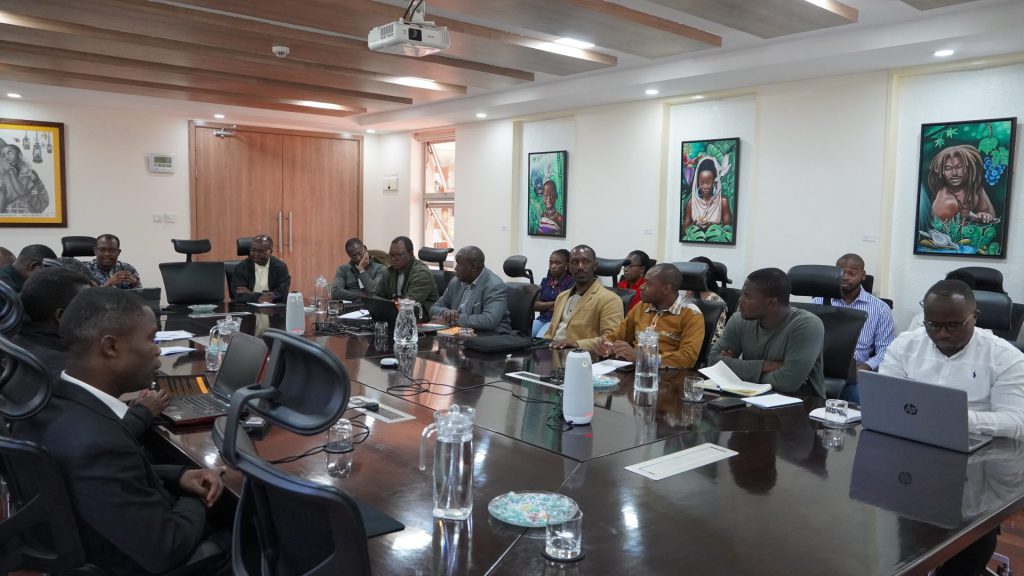
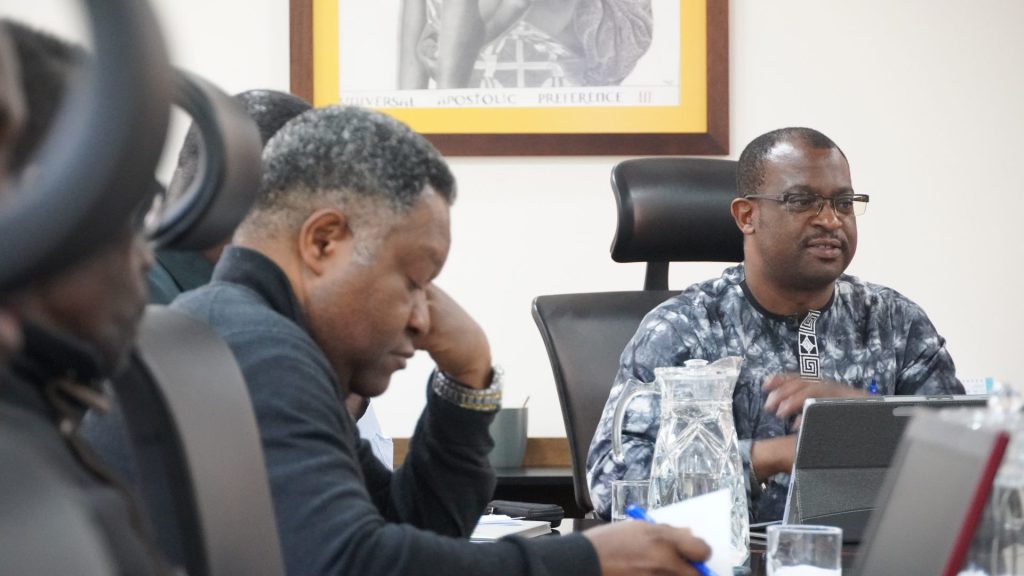
The year 2023 marks the 35th commemoration of World AIDS Day since 1988. The celebration started off with a brief introduction by the AJAN Director, Fr. Ismael Matambura, SJ. He explained the significance of this celebration. In this regard, he gave 3 reasons to celebrate: First, to celebrate various successes of Jesuits in the Continent (AJAN), all actors and researchers on the ground in protecting and transforming lives of those infected and affected across the network. Second, to raise more awareness on the need to continue the fight because HIV is not over, it is still with us and it is still affecting the planet, especially sub-Saharan Africa. Third, to pray the almighty God for the end of the epidemic, for more engagement and common commitment in the efforts to end the epidemic by putting the person at the center with conjugated creativity. In 2022, the World AIDS Day focused on a call to ending inequalities that are a strong barrier to end the epidemic. They include inequality in access, testing and treatment, care, financing, etc. This year 2023 in addition to all the services and progresses made, we are pushing to give power to the communities, under the slogan “Let Communities Lead” as suggested by UNAIDS and WHO. Communities know, experience the problem, and know what works better for them to find lasting solutions. While we continue to live with the realities of the HIV and AIDS epidemic, we are all too aware of the fact that we are still losing far too many people to this disease.”
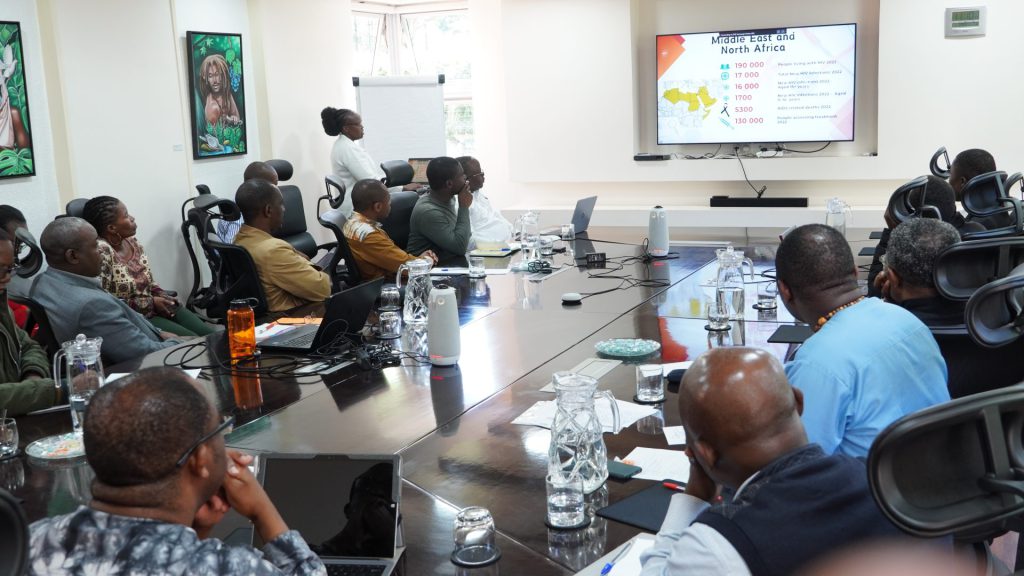
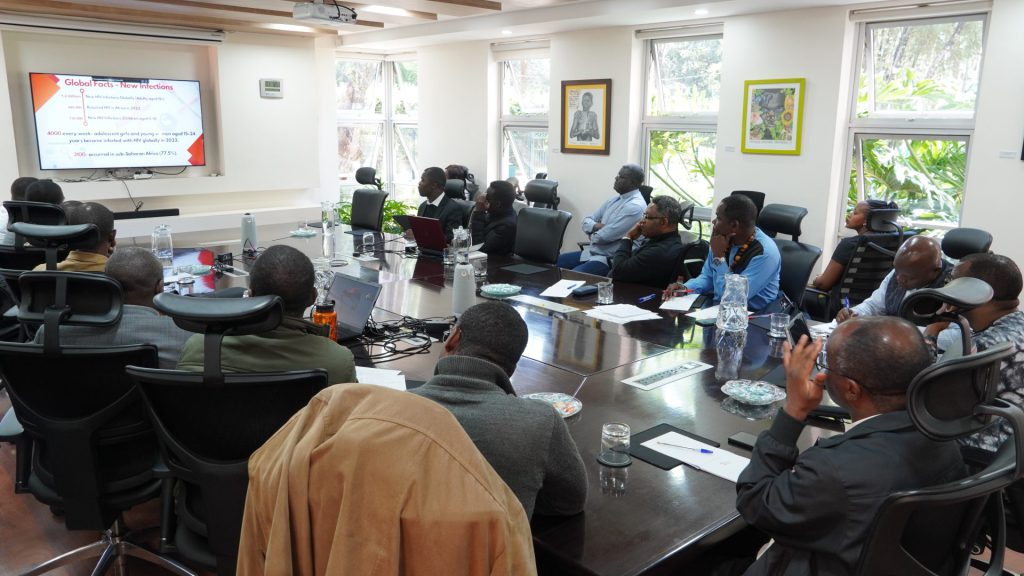
Ms. Pascalia Sergon, AJAN capacity building Officer, followed by giving a presentation on the state of the HIV and AIDS epidemic today. She provided an overview of the state of the HIV epidemics globally and in sub-Saharan Africa. The UNAIDS 2023 Report shows that there were 20.8 million HIV-positive people in Eastern and Southern Africa; of these, 500,000 were new infections; 440,000 were among adults over the age of 15, and 58,000 were among young people between the ages of 0 and 14. The region also had 260,000 AIDS-related deaths and 7 million treatment-seekers; in the Middle East and North Africa, there were 190,000 people living with HIV; 17,000 were new infections overall, 16, 000 were among people aged 15+, 1,700 were among young people aged 0-14, 5,300 were AIDS-related deaths and 130,000 were receiving treatment. In Western and Central Africa, there were 4.8 million HIV-positive people; of these, 160, 000 were new infections, 110, 000 were among people aged 15+, and 51,000 were among young people aged 0-14. The region also saw 120,000 AIDS-related deaths and 3.9 million people receiving treatment.
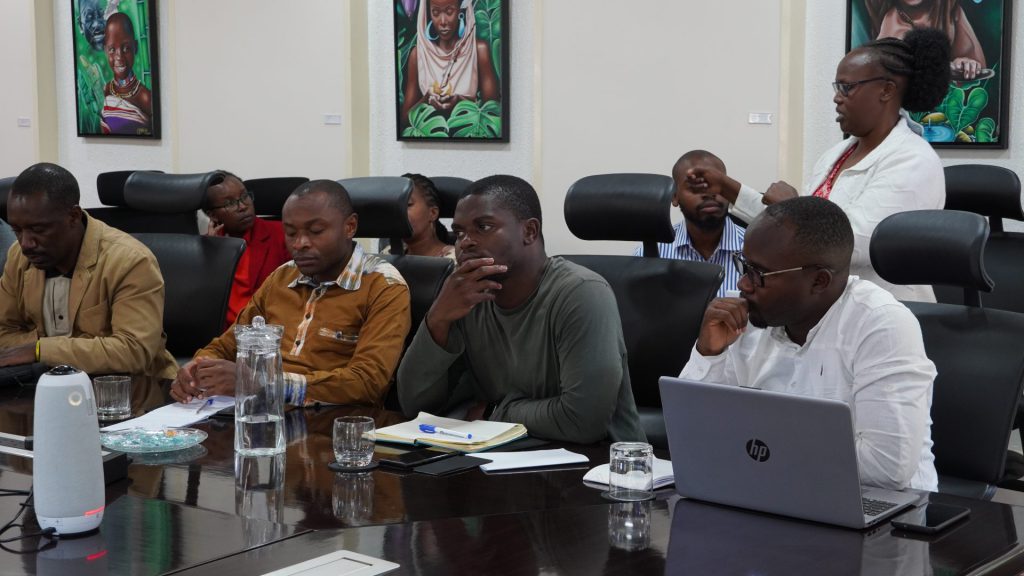
Even though the situation in Africa is still dire, the presentation also emphasized the tremendous work and initiatives that AJAN with partners are doing both at the Secretariat and Grass root levels (Center members) to align with this year’s theme ‘let communities lead’. The Jesuits’ grassroots initiatives and interventions include providing HIV and AIDS testing, medical and care; raising public awareness of HIV prevention, Gender-Based Violence (GBV), non-communicable diseases and HIV prevention; providing scholarships for underprivileged children and orphans; and supporting the holistic development of young people through the AJAN HIV and AIDS Prevention Program for the Youth (AHAPPY); Poverty reduction through income generating activities (IGAs) and skills training for social development; Provision of Psychosocial and pastoral care by supporting groups of People Living with HIV (PLHIV), health clubs for youth in school, mentoring and counselling; and knowledge sharing through research and publications.
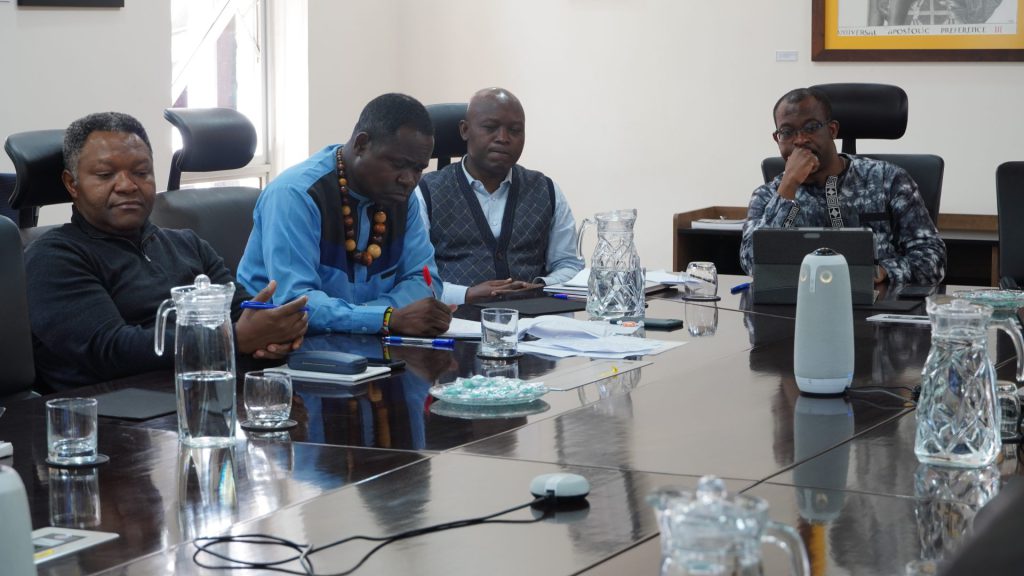
According to the UNAIDS 2023 Report, Botswana, Eswatini, Rwanda, Tanzania, and Zimbabwe have already achieved the “95-95-95” targets, but then to ensure that we meet the global target, strengthening the HIV treatment cascade is critical. That means 95% of the people who are living with HIV knowing their HIV status, 95% of the people who know that they are living with HIV being on lifesaving antiretroviral treatment, and 95% of people who are on treatment suppress the viral load. Fr. Ismael Matambura SJ. reiterated the need to boldly acknowledge and address the challenges that still exists in communities that impede efforts to end AIDS; we can ‘Let Communities Lead’ if we empower them through social entrepreneurship programs to eradicate poverty, carrying out a number of activities that include public sensitizations, integrated health services, encouraging our young people to get tested, providing them with proper guidance, information and counselling, distribution of important medication, training of peer educators who reach out to different segments of the younger population.
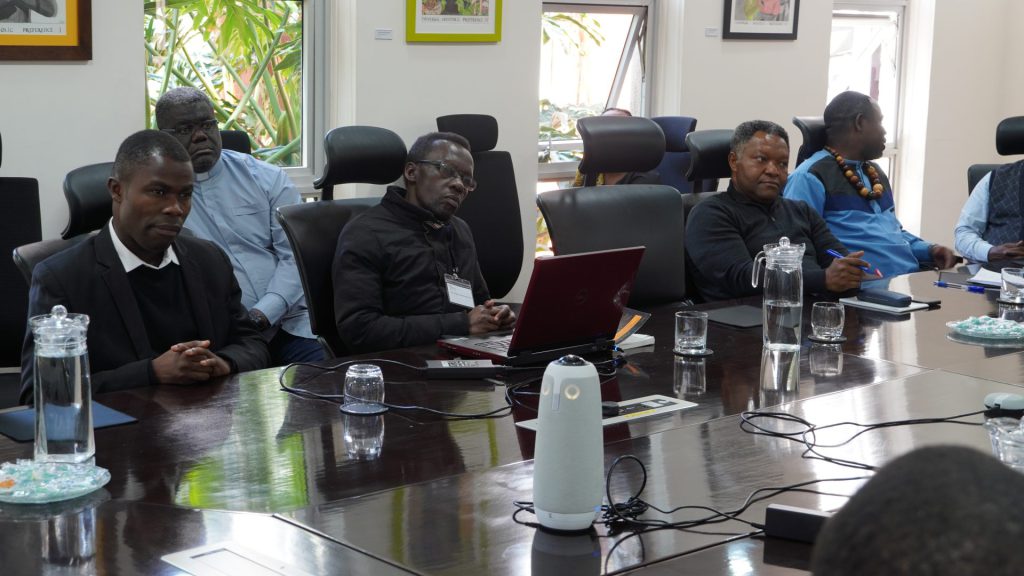
Following the presentations and the JCAM President’s Statement on this special day, everyone assembled in the JCAM chapel for World AIDS Day Prayers and intercessions led by Father Ismael Matambura, SJ.
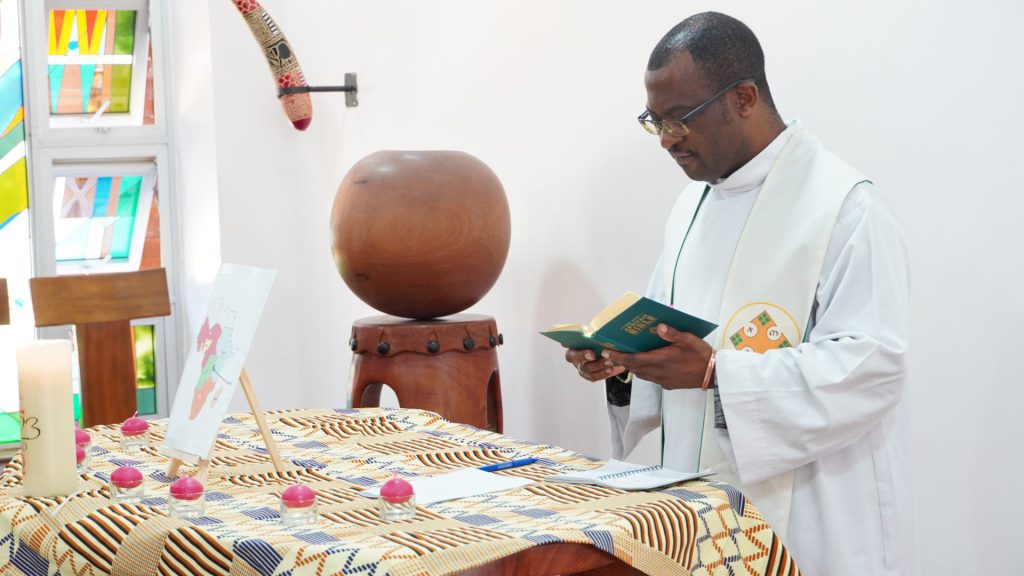
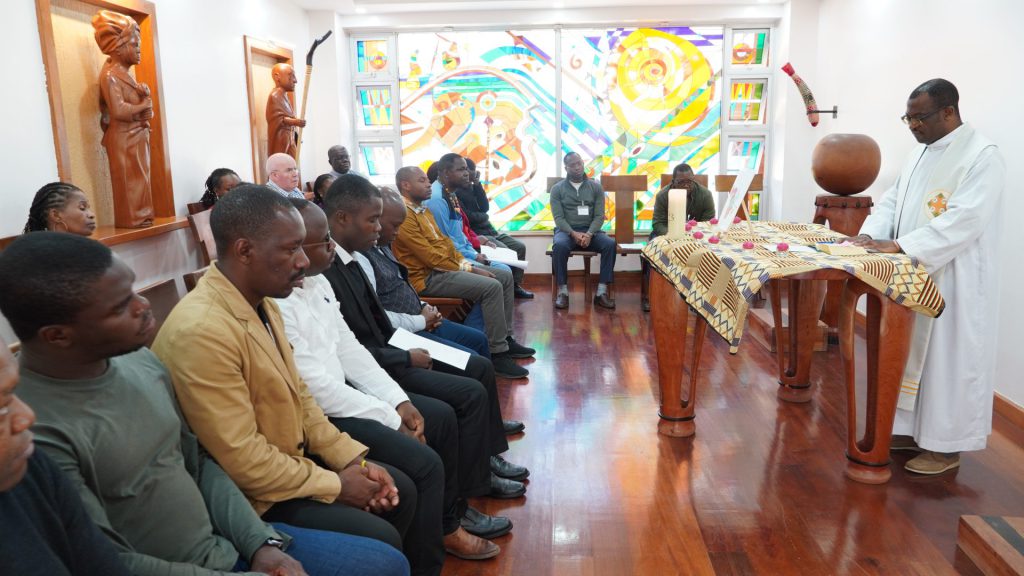
The Gospel passage read for this occasion was the parable of the Good Samaritan from Luke 10,25-37. Fr Matambura focused on Jesus’s call “Go and do likewise”. He went on commenting that believers cannot stay inactive regarding the impact of HIV today on communities, individuals, systems, etc. Jesus’s demand is not an option. Where people are united miracles happen and AJAN’s interventions and engagement at the grass root have and are still producing miracles in people’s lives. Consoling testimonies across the Network are eloquent on that. “Go and you too do likewise”. Eight candles were lit around the alter as prayers were offered, with a map of Africa representing the six Jesuit provinces, the Rwanda Burundi Region, and JCAM placed at its center. The prayers were for the following: for all HIV-positive individuals and the North-West Africa province (ANW); for academics and Heath care providers and the West Africa province (AOC); for communities impacted by the epidemic and the Central Africa province (ACE); for HIV awareness, education and the Southern Africa province (SAP); for a more accepting world and the Rwanda-Burundi region (RWB); for the fight against stigma, inequalities and the Province of Madagascar (MDG); for all people who have died from AIDS and the Eastern Africa province (AOR); for all organizations and actors fighting against AIDS and the Conference of Jesuits of Africa and Madagascar (JCAM).
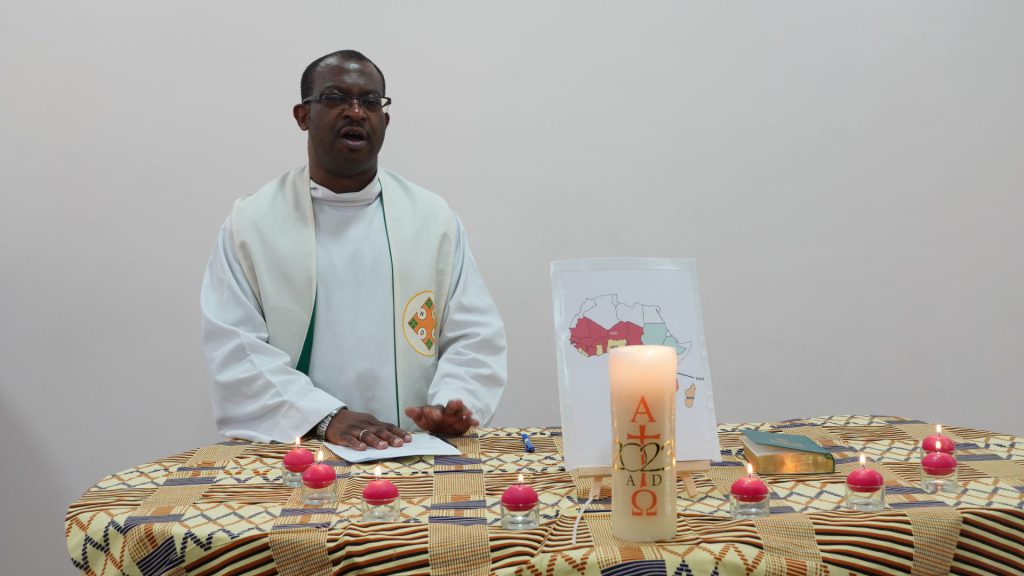
Each burning flame represented lives lost to HIV in all those regions and prayer intentions that were put forth to ask God for healing to our communities and passion into our hearts. A candle dies while giving light around. It a symbol of self-giving, commitment and sacrifice for the good of others which is requires of every believer in face of suffering. The candles are for all the communities in Africa, to remember the millions around the world who don’t have the access to the many blessings of healthcare and medications. Christ’s mission to protect, care and give everyone abundant life is shared on this day by Jesuits and collaborators in Africa: “I have come so that they may have life and have it to the full” (John 10:10). The African Jesuit AIDS Network continues to support those who are infected and affected by the virus through an integrated, holistic approach of empowering the communities by making them take the lead, and cocreate.
“When communities lead, changes happen”.
By, Dennis Owuoche
AJAN Communications Officer.

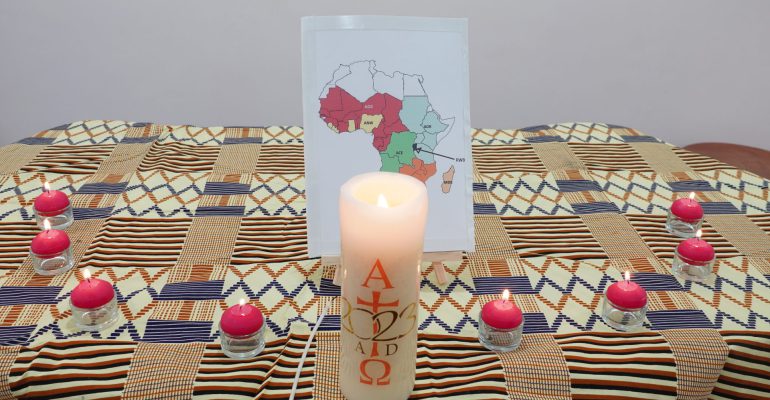
Comments are closed.